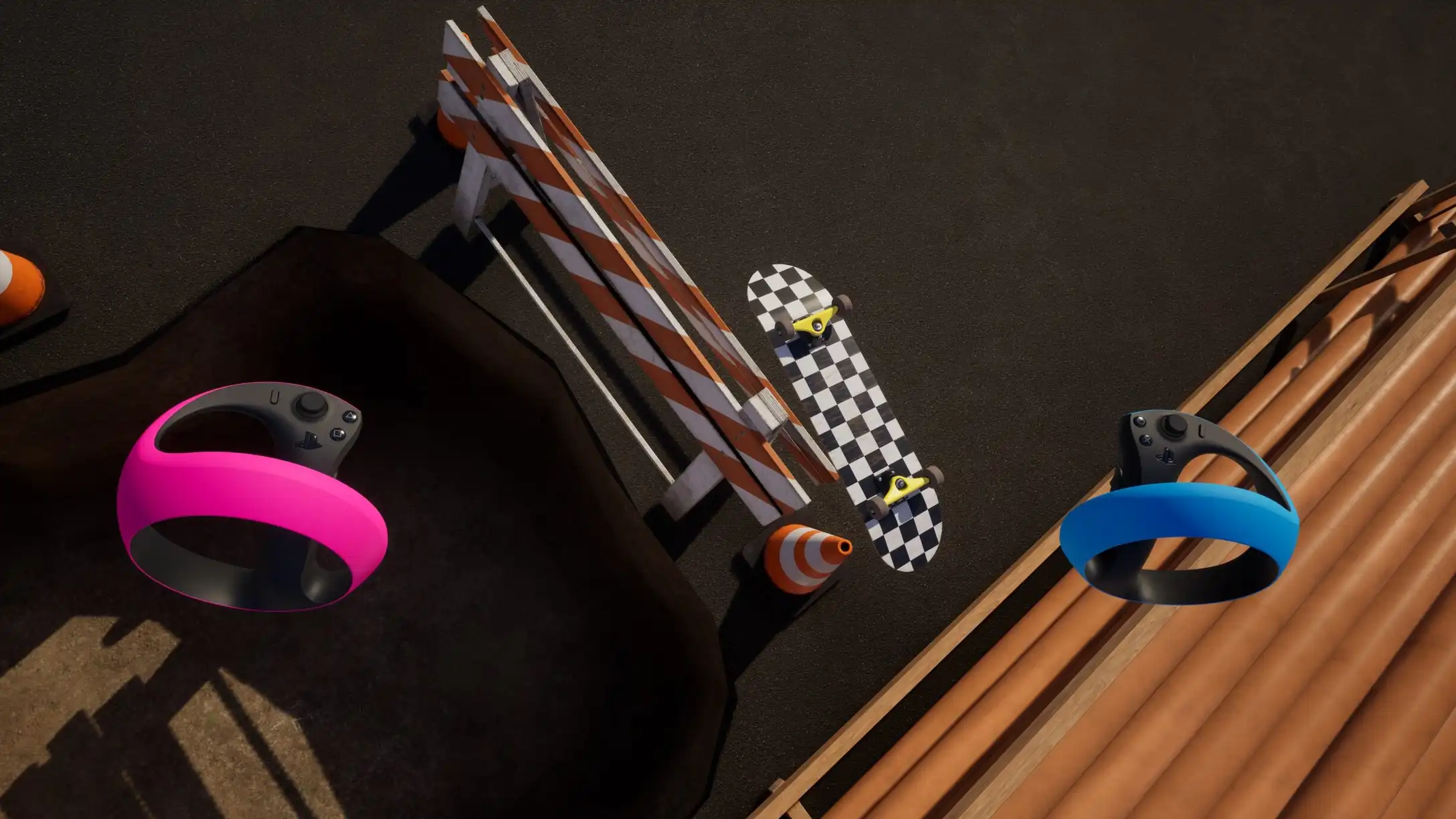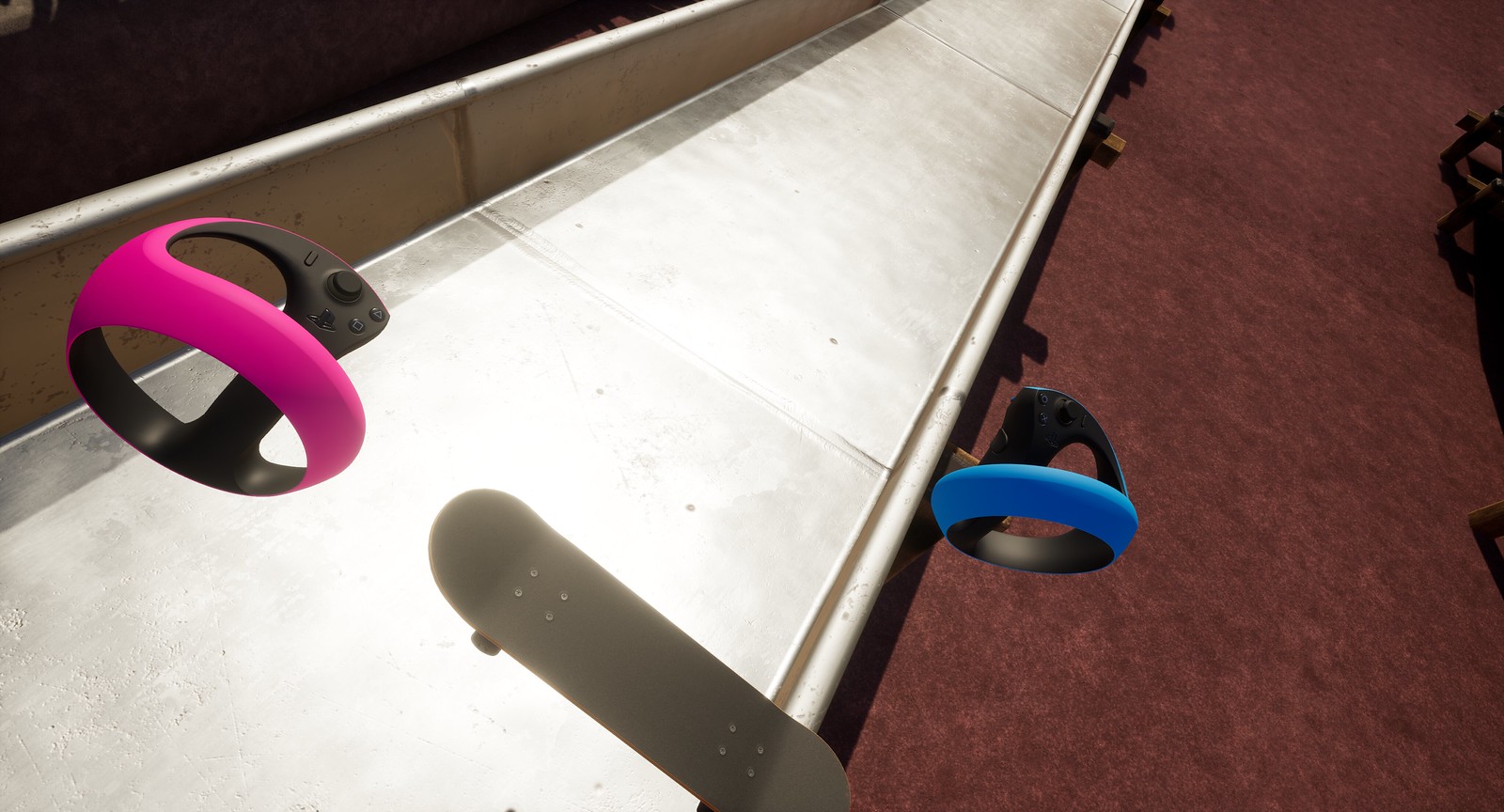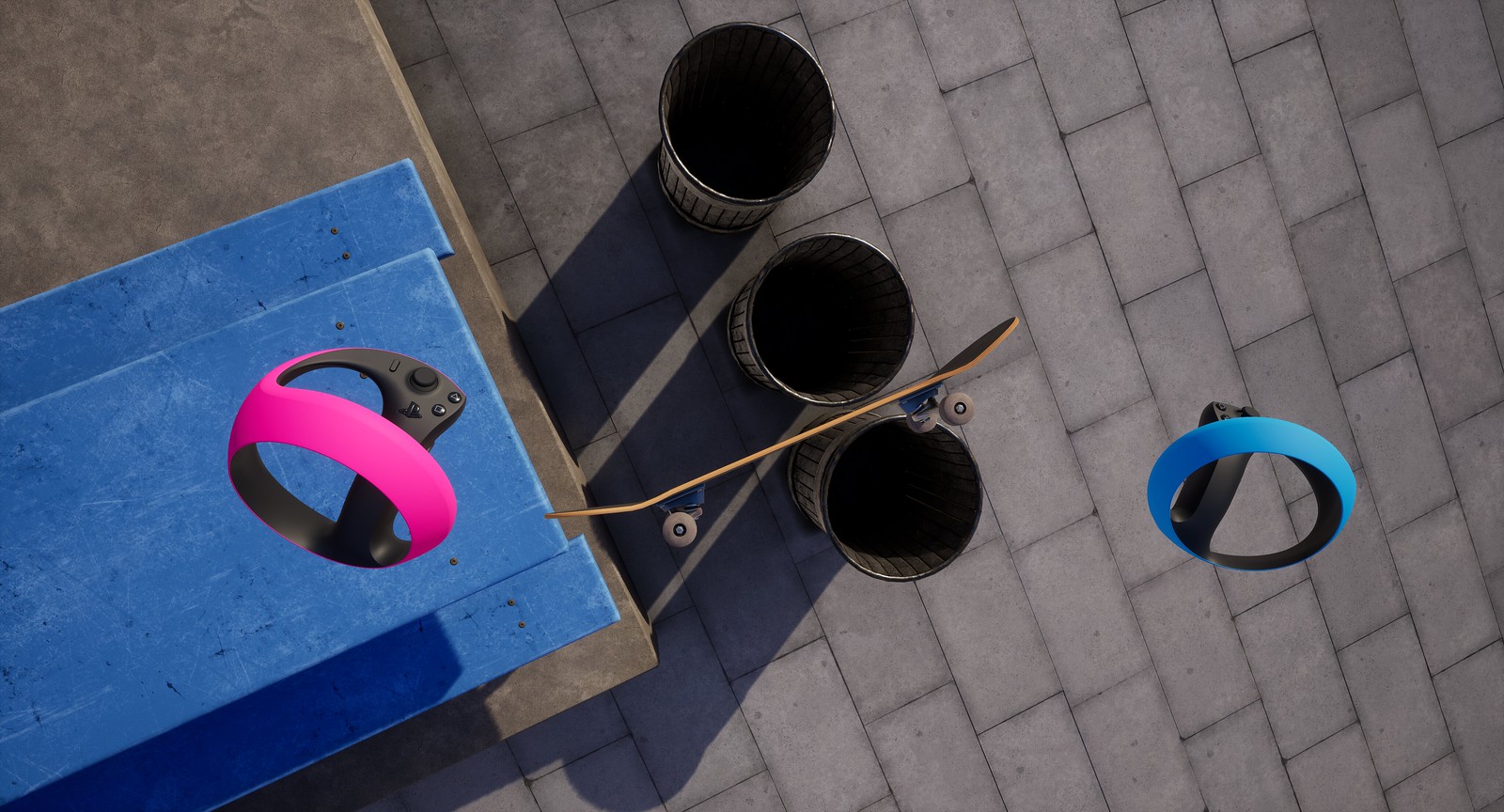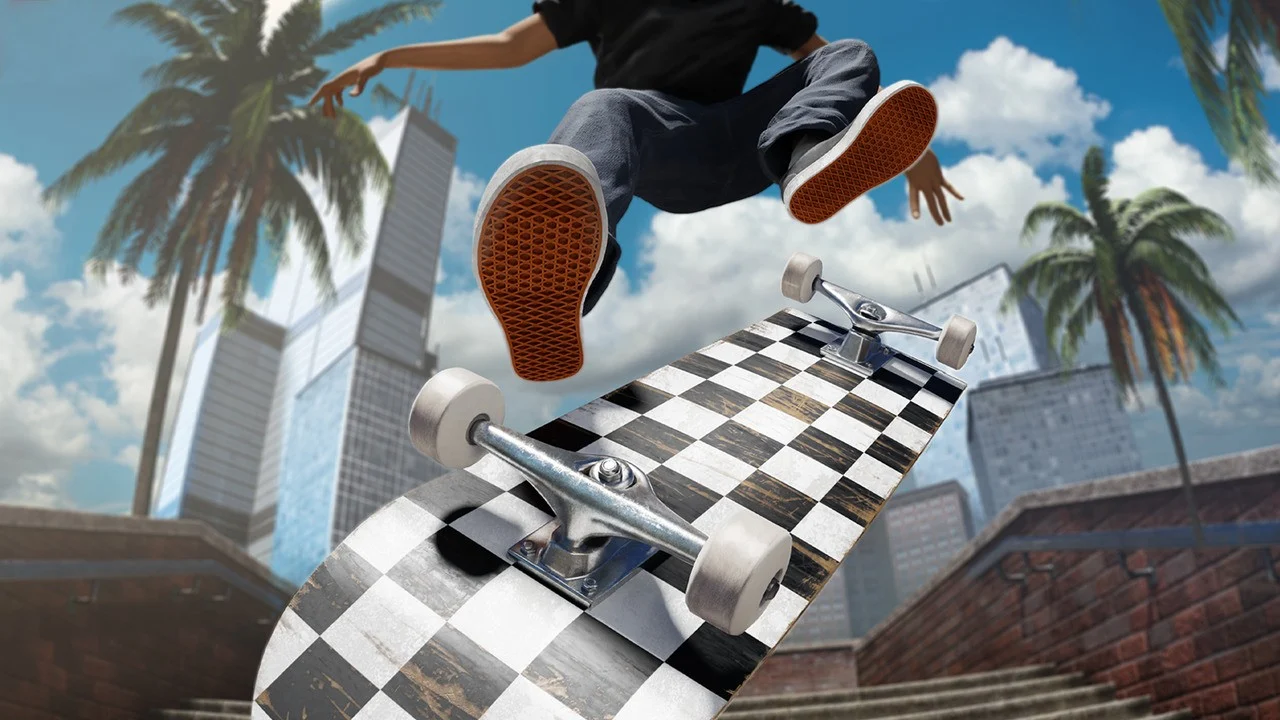Like skateboarding, games are forever innovating the possibilities in their medium. VR in particular is the current frontier that Deficit Games are exploring with their title VR Skater. It’s easy to be sceptical from the start as history has proven not great results. Tony Hawk’s Ride with its unresponsive and flimsy skateboard controller, Skate It for the Wii where you frustratingly flick the remotes to pull off tricks. Do we even need to mention Shaun White’s Skateboarding?… Long story short, there’s been attempts made to branch out the possibilities with skateboarding games that have fallen completely flat.
This is probably more so a case of the tech not quite being ready to take skateboarding on. As well as the unrealistic expectations of a community that can’t quite skateboard like Geoff Rowley, but can tell you when a skateboarding game sucks. The tide is turning, however, with indie developers – usually a group of skaters – creating skate experiences that live up to the hype. So where does VR Skater land in all this? Definitely not primo.
School III
As has been the current trend for skating games, the onboarding to learn just the basics of the game is tough to wrap your head around. If you’re into the sport or play similar games you might have a slight edge, as you have a good idea of the physics behind skateboarding. However, I still spent a decent chunk in the tutorial stage. Depending on your stance – goofy or regular – your left and right hand will act as your front or back foot. I’m regular so my left hand is my front, and my right is my back.
You push forward with your back foot by simply swinging your arm back. Turning sees you guiding the direction with your left arm in front of you whilst holding L2. To ollie you hold down ‘X’ and let go. To do kickflips you’ll hold down ‘X’ flick your left hand diagonally left, like you would in Session: Skate Sim, or you know real life, and then catch it by pressing ‘X’ again. There are also grinds, slides, manuals, grabs, finger flips and late flips that all utilise different parts of your controllers but the gist is to jump and flick your arms to make the board spin and flip. VR Skater doesn’t strip the controls back in favour of a potentially easier game and I admire Deficit Games for that.
The tutorial text boxes that demonstrate what you’re learning aren’t completely clear. In some instances, it’ll tell you to press a button, but not a specific one, so you might spend a few minutes trying to figure it out. Whilst the Academy Mode might be the least exciting, it’s vital to learn everything and does a decent enough job to get you there.

Hitting the Streets
The mode you’ll be spending most of your time playing is the Tour Mode. It comprises of 7 different levels with 4 different challenges all with their own medal to acquire. Some of the maps include a neighbourhood, city streets, a school, shipyard, similar to some of the highlights you’d find in a Tony Hawk’s Pro Skater. I really like the design format of the levels. Think of them as really wide but long rectangular spaces, where the idea is to go forward to progress but there are so many lanes you could go to that opens up completely different spots for you to take on.
It feels like a conscious effort for players not to possibly get motion-sick and lack momentum when they’re playing so the gameplay doesn’t feel stale. Everything within the levels is designed to be tackled in multiple ways, giving that sense of freedom all skating games should have. Whilst they’re not massive levels, they’re so packed with stair sets, handrails, park benches, hubbas you could easily spend hours exploring one map and shred new spots.
It’s also where I think VR Skater succeeds the most in being an elevated skateboarding experience that does more than try to recreate the sport. The gameplay and controls execute a level of realism that has achieved so much for the genre, but the levels increasingly get closer to the arcade heights of EA’s Skate. That’s not to say you’ll be pulling off 200x combos, but you will be flipping, grabbing and grinding obstacles that you’d never be able to do, whilst still keeping it fairly grounded.

Kick, Push
The gameplay feels unbelievably intuitive despite using your arms. If you skate, you naturally throw your arms up when doing tricks and this is just that but with more thought behind your arm movements. It really feels like you’re doing the best impression of skateboarding without actually doing it and I don’t think there’s a better compliment for a VR title. It is a steep learning curve even after going through Academy Mode but the game doesn’t completely lock you out of content if you’re not great to start off with.
The only requirement is to get a medal in one of the four modes of the previous map. You have your standard run where you have to score as high as you can before the end of the level. A sudden death mode is the same but if you bail your run is over. A best trick mode where you have to pull off your best moves in three attempts at one spot. Lastly, the best run which scores your first five tricks to accumulate a high score.
To achieve a gold medal felt extremely unfair, to begin with. Though with practice, I soon started to achieve them and it was at this moment it all clicked for me at just how fun VR Skater is. The game forces you to use everything in your arsenal if you want to get the gold and the tough challenge is just as equally rewarding. However, the motivation to get these high scores isn’t so much.
One Stop (Please Don’t) Shop
As you gain XP from earning medals you’ll level up. Levelling up unlocks the cosmetic items of the game. This ranges from your board graphic, grip tape, wheels and your trucks. It’s cool that you have full customisation of your board, but it doesn’t mean much if everything you can pick is extremely generic. It’s all just a change in a colour palette, with standard designs like checkerboard or tartan and nothing looks cool to ride.
I don’t expect skate brands to turn up and be in the game. I get there are licenses and with that is money, but something that had just an ounce of influence from skateboard designs in real life would have gone a long way. There is a neat mechanic where the more you skate, the more messed up all the components get but there really isn’t an excuse to change them. The board itself and the wear and tear does look good though.
The graphical fidelity overall is decent, there is a resemblance of photorealism whilst still keeping an arcade style. There were a couple of visual glitches where windows would blast my vision with a blinding light repeatedly if I was stopped, but nothing major. There is also a licensed soundtrack with some lesser-known artists in the pop-punk, hip-hop or hardcore genre. It’s not a massive playlist but Deficit Games have set a great tone and involves bands you might not have heard but it perfectly encapsulates that era of naturally discovering music.

King of the Road
As I write up my review with sore arms from another day of skating in VR Skater, I can’t help but think about jumping in and beating my scores. I don’t know if there’s so much staying power with this title as other skating games, but that might be more on what the player can make of it. There are plans for more maps, meaning more challenges and I’d be pulled right back to play those if I’m not still playing it.
There’s an undeniable achievement here with Deficit Games and for a first try, VR Skater certainly delivers on a lot. This is the closest I’ve felt actually skating without stepping foot on a board and it so easily could have felt like a cheesy attempt, but it’s a complex, realistic and all-around fun game to play if you’re into skating. It may not land with everyone due to the barrier of entry, but it presents an authenticity that felt impossible before.
The modes aren’t the most diverse or creative, but the levels make up for that. Outside of those challenges, you can just practice or free skate in them too, as well as some online leaderboards to come. So there is room to grow for VR Skater and I hope it does because I came away excited that skating games can still innovate successfully.
A blistering challenge and a steep learning curve await but if you persevere through the difficulties there is a great feeling VR game and an impressive skating game too. Deficit Games have done an exceptional job to feel authentic whilst remaining arcadey and fun. Outside of the great gameplay and entertaining levels is a flawed sense of progression but it’s a great first attempt.

VR Skater is available now for PSVR2 on PlayStation 5 (review platform) and PC via Steam.
Developer: Deficit Games
Publisher: Perpetual Entertainment
Disclaimer: In order to complete this review, we were provided with a promotional copy of the game. For our full review policy, please go here.
If you enjoyed this article or any more of our content, please consider our Patreon.
Make sure to follow Finger Guns on our social channels. Twitter, Facebook, Twitch, Spotify or Apple Podcasts – to keep up to date on our news, reviews and features.
